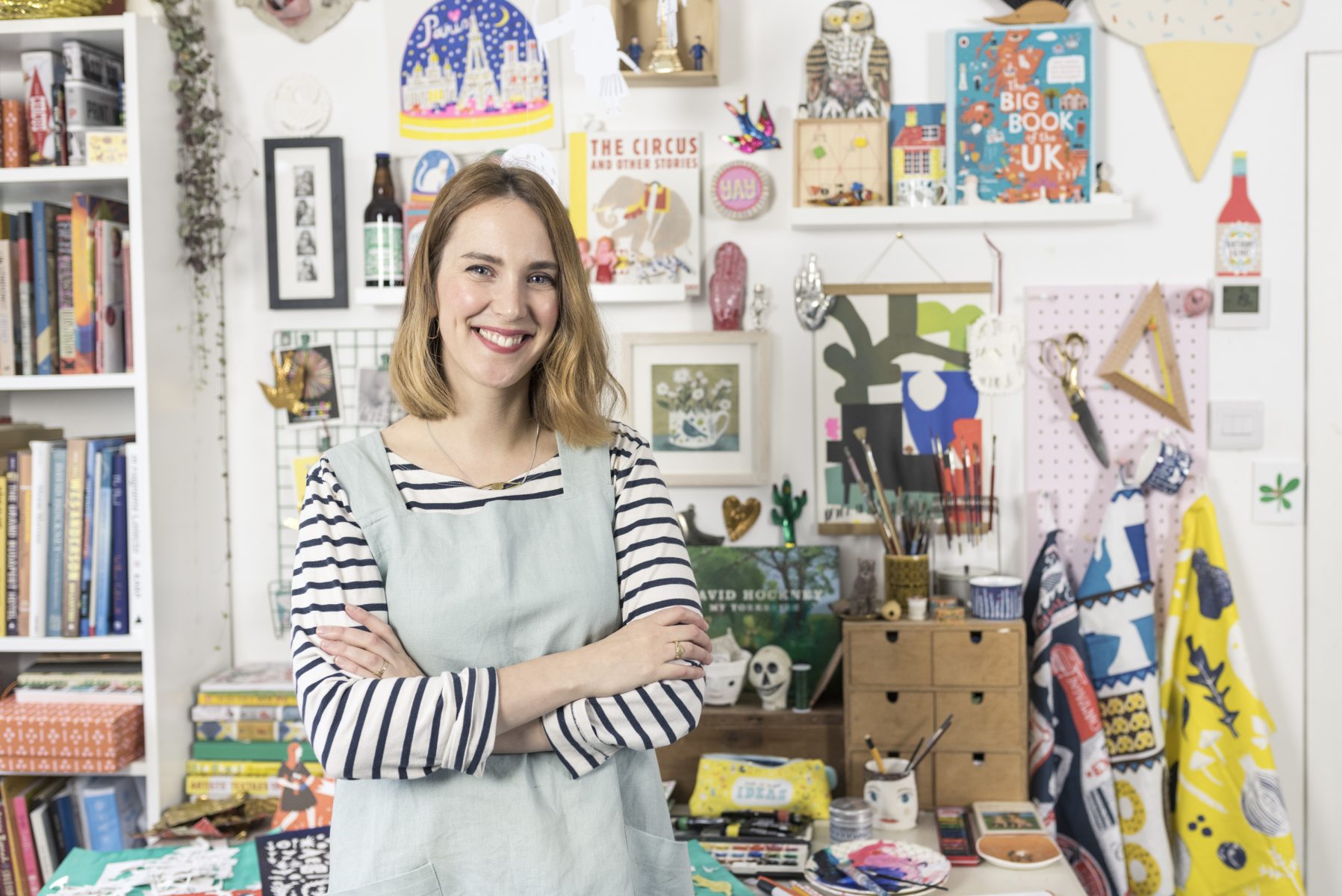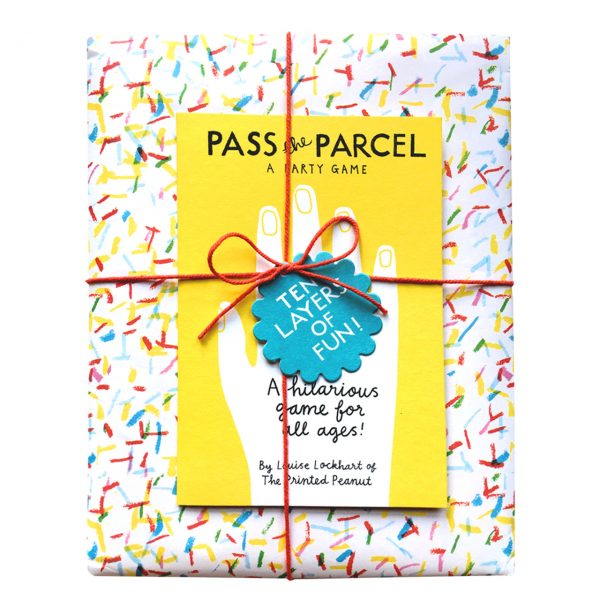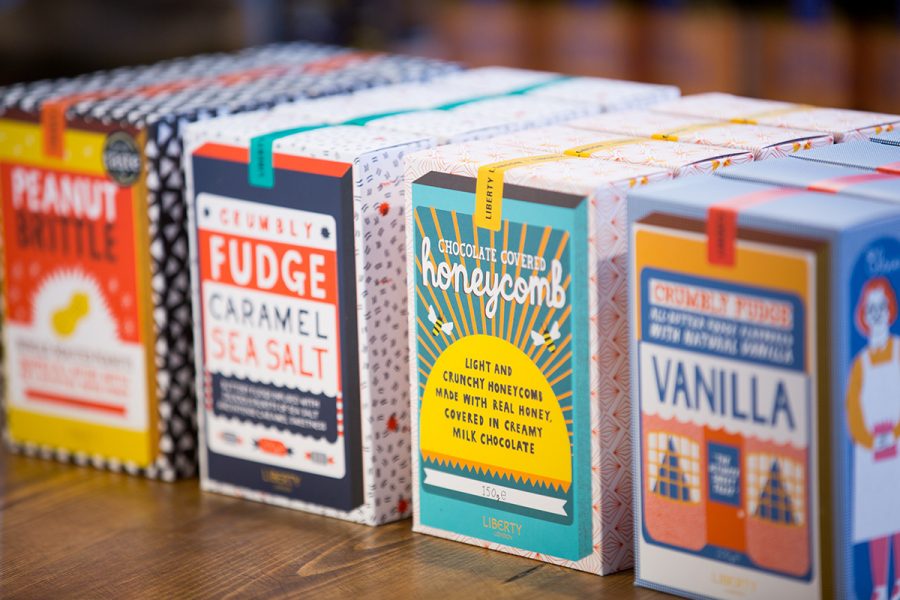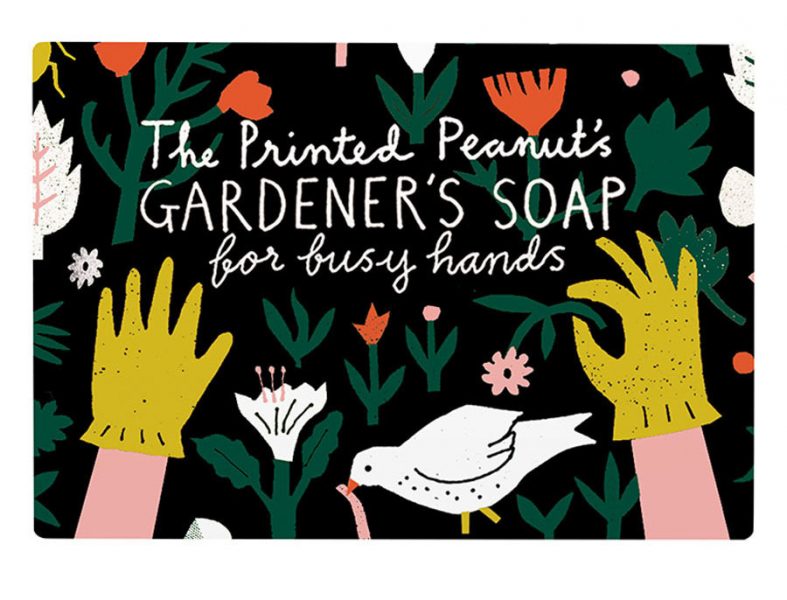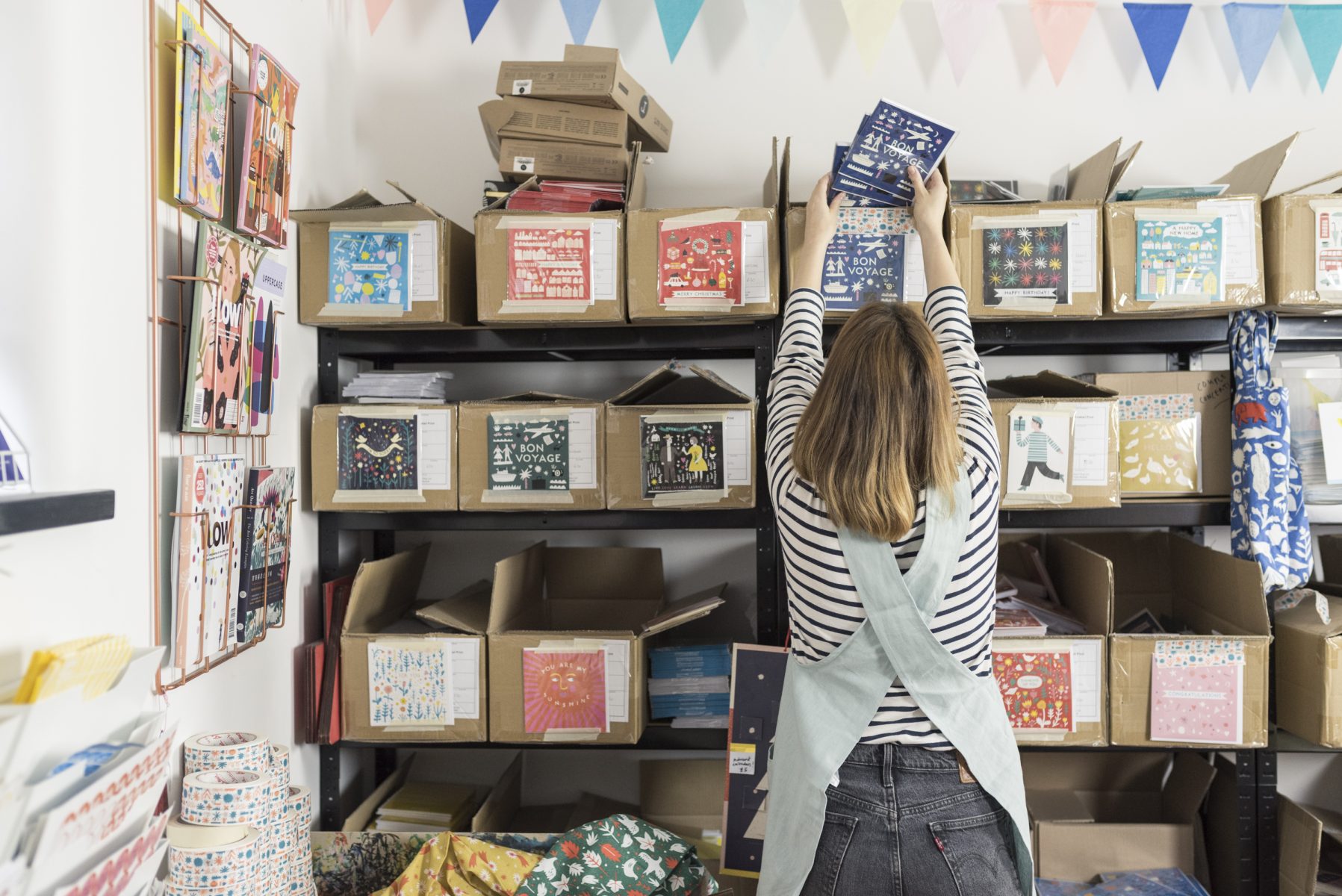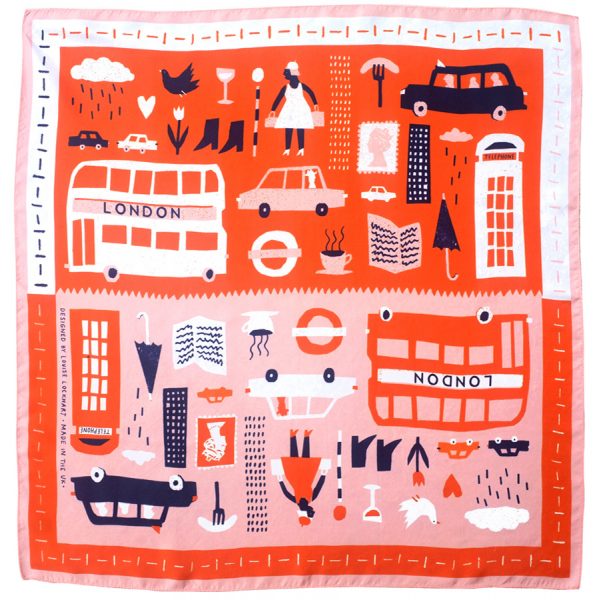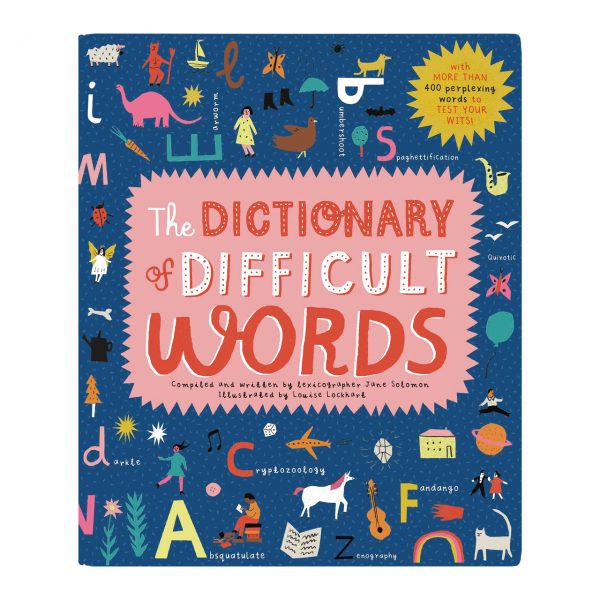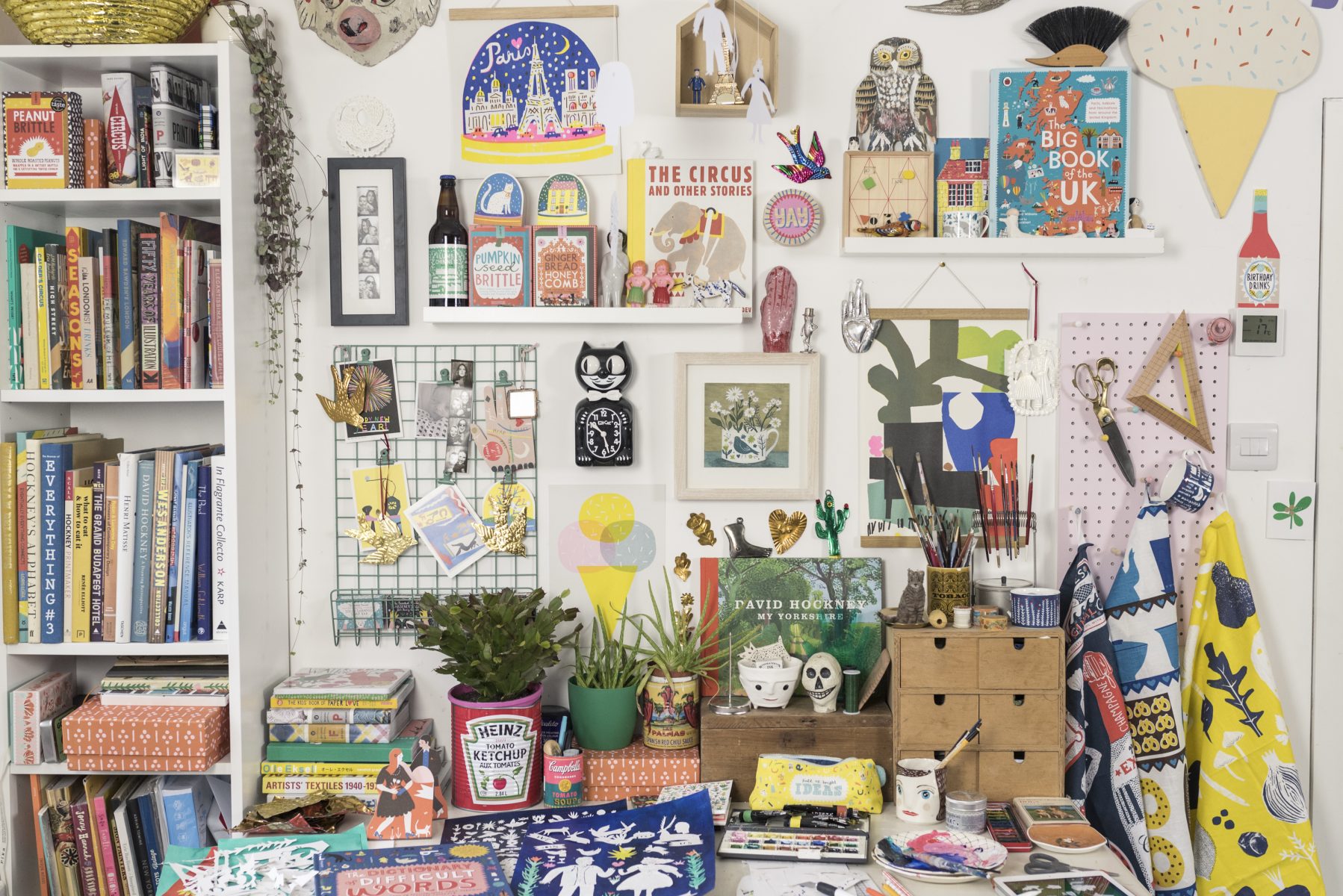Business Insights: The Printed Peanut
Here at the AOI we are always interested in how creatives grow their businesses and expand their practice into new and exciting areas. We were thrilled to catch up with illustrator Louise Lockhart, to discuss how she has built a successful career selling her own printed products through her online store, The Printed Peanut. Since starting The Printed Peanut in 2012, Louise has developed an ever-expanding range of playful illustrated products, organically attracting the attention of high end clients such as Liberty, Heals and Anthropologie. But what does it take juggle client commissions, designing new products and running a busy e-commerce business? Louise talks openly about her ‘slow and steady’ approach to business growth and how she runs her one woman show in the interview below.
Can you tell us a bit about yourself and how The Printed Peanut was born?
I am an illustrator living in an old mill in a small town in England. I spend my days creating designs from little paper cut outs and line drawings, dreaming up worlds where men still wear suits and hats. As well as working as a freelance illustrator, I apply my illustrations to products, which I sells in my online shop The Printed Peanut. The business started as I wanted an outlet for my creations. I was working in a brilliant stationery shop in Vancouver, Canada which really inspired me to make my own products. I started by screen-printing wrapping paper and cards in my home. I’d pop them in the shop and see what sparked interest from customers. It was a great introduction into the business side of things as I had no experience in that previously.
Was there a key moment that made you think more seriously of yourself as a business?
After a year in Canada working in the shop, I returned to Britain and I decided it was time to go full time as an illustrator. It’s hard to get work when you are starting out, so I focused on designing products for The Printed Peanut. Once people saw them out in the real world they began to employ me for their projects too. The Printed Peanut has grown steadily and slowly so it’s almost crept up on me that I am a business owner, I never thought I would be!
As in any career, it’s important that illustrators to plan for the future. Do you have a business plan? How did you develop it?
I don’t feel like a natural business person so every single step has been a learning curve. I had to learn what an invoice was, how much to wholesale products for, where to get products made, how to send design-ready files, how to keep accounts, how to order stock, find a place to store and sort stock, how to pack up orders for shops…. I could go on! I would suggest finding a similar business local to you and ask if you can shadow them for a couple of days to see how they do it.
I have an accountant and he is a godsend. It’s hard to keep track of everything when doing every aspect of the business myself and I knew it was the one area I really needed help with. He has helped me form my companies The Printed Peanut Ltd and Louise Lockhart Ltd (for my illustration work) as well as help to organise my tax return and finances. I also use Hivaeage for my shop invoices and my web shop is run by Bigcommerce.
I probably should have a plan! I keep very true to myself and what I want to create. I think there is always a tug of war with creating things you know are commercial and will sell with creating things that you believe in and trying out new things. That’s what keeps it interesting though.
“I think it is key to grow slowly and steadily so you always keep a good handle on things.”
What percentage of your income comes from your product sales vs. commissions? And how do you split your time between the two?
It changes all the time! It’s great to have two streams of income. Illustration work can be quite sporadic so it’s great to have something more consistent from the web shop sales. Sometimes I need to spend a lot of money on stock so it helps if I have a big commission on to pay for that. I don’t take on commission work around Christmas as I know that will be the most busy time for the shop. It is a lot of work single handedly running a business, alongside designing, making, selling and sending out products. Sometimes I feel like I’m doing seven people’s jobs at once and it is a balancing act. Especially as I look after my baby full time too!
It’s really interesting to hear your two streams of income support each other and how you keep track of each side of the business. Do you ever think about employing someone to help in the future? Or would you prefer to maintain your current set up?
I used to want to expand the business more and more and to make The Printed Peanut a big company, as that’s what seems a natural progression in business. I would have more and more products made and it was getting quite hard, for example keeping on top of stock levels or taking photos of everything to put online. I decided to scale it back and go back to my original true vision of The Printed Peanut, which is paper-based printed products. Recently I’ve been really pleased that my company is so small. I think customers like the fact that they feel that they have ‘discovered’ me. I like printing short runs of products and prints which makes them more collectable and desirable. I‘m pleased I don’t have to worry about paying someone a wage every week and that I can dip in and out of the business at my will. I love the fact that I can go on holiday for two weeks and things don’t grind to a halt too much. People are more understanding when they know you are a one-woman operation!
You work with a brilliant range of stockists around the country (and even further afield), how did you develop these relationships?
When I started I would go to my local shops and give my products on a sale or return basis, which can be beneficial for you as you can see what sells. Sale or return means you put your item in a shop, and if it sells then you both receive a commission (perhaps 50% of the sale price each). If it doesn’t sell it is returned back to the maker. It’s a bit of a gamble for both parties but it can work really well, especially for smaller shops that might not have a lot of money to buy stock. I email stockists that I like the look of and people get in touch with me. I like to support small, independent shops and galleries. It’s like a small community where they keep their eyes out for things that are more unique and interesting. I think they must also find me on Instagram too.
“Again, it’s been a slow and steady build up of contacts. When you start out you want to be everywhere straight away but it all takes time.”
The Printed Peanut has a strong social media presence, how have you nurtured and grown your following?
People ask me this and I really don’t have a secret. I just keep true to myself, showing my process and inspiration as well as finished pieces. People seem to like it when you explain about your working process and they get a glimpse behind the scenes. I want to be myself, a person that other creative people can relate to. People don’t like a hard sell, a “BUY THIS” type of post. I think about posts that I enjoy reading too and reflect that sort of content. I think the photography has to be of a high standard too, you can’t get away with a dark snap off your phone any more.
How do you look after your wellbeing ?
My life has changed direction since I had a baby a year ago. It’s forced me to slow down on the work front. I’ve really been able to reevaluate what I want to do and how to prioritise my time. I spend much more time away from a screen now and have a new focus in life other than working.
“It has made me appreciate slow living, going for walks, family time and cooking. Which in turn has given me a renewed energy for designing things.”
Do you have any upcoming projects or goals you are able to share with us?
I’m about to start work on my 6th children’s book, which is a follow on from The Dictionary of Difficult Words. It’s the first big project I’ve taken on since I’ve had the baby so it’ll be interesting to see how it works out, working on a more 9am-5pm basis. I’m also busy designing more paper products for The Printed Peanut, exploring different print techniques such as letterpress and litho.
Top 3 tips for your peers who are thinking about creating their own range of products?
- Keep true to your intentions, don’t just produce stuff for the sake of it, or if it’s in fashion right now.
- Just produce a small run at first, don’t buy loads of stock before you’ve tried it out. Start small and build up slowly.
- Do all the fairs you can and approach local shops with your wares. It’s a good way to learn about how businesses work.
To see more of Louise Lockhart’s work head over to her shop www.theprintedpeanut.co.uk
Or follow The Printed Peanut on social media:
Instagram @theprintedpeanut
Twitter @printedpeanut
Back to News Page

